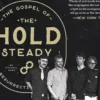How did you start your career in the entertainment industry? Can you tell us a brief background of yourself and your journey?
As a child I binged TV before the concept had a label. Being a trailblazer in this way was not appreciated by my parents. With the TV taken away, I channeled my energy toward more productive endeavors like writing scripts for the shows I couldn’t watch. This led to USC for my screenwriting degree. During my college senior year, I heard about the Nicholl Fellowships. I was already freelancing as a story analyst, so I applied to be a seasonal reader. After years of reading for many competitions including Sundance, AFI, and various production companies, I started helping out in the Nicholl office. I stuck out many more years with the Nicholl—barnacles are my spirit animal–now I oversee this amazing screenwriting competition.
The Academy’s Nicholl Fellowships in Screenwriting is the most prestigious screenwriting competition in Hollywood. Can you walk us through what the program is about and what the fellowship offers to emerging screenwriters?
The Nicholl Fellowships in Screenwriting is an annual competition to identify and encourage talented new screenwriters. This is for amateur feature screenplay writers. Each year, we award up to five $35,000 cash prizes. In 2020, we received a record 7,831 entries representing over 70 countries around the world.
Every script is read blind (no information about the writer) at least twice. By the time a script reaches the finalist round, it will have been read 10 times by 6 different readers and 4 different volunteer Academy members representing all branches. Then a committee (also made up of Academy members) votes on the winners. Since this is such a rigorous competition, winning a Nicholl fellowship generates attention within the industry. And the winners of this fellowship—we call them fellows, our fellows adore the friendships that come out of this.
What are the benefits or advantages of entering screenwriting competitions especially for aspiring screenwriters?
You don’t necessarily have to win. Just placing in a screenwriting competition gives you distinction. This can be used as a calling card. Increasingly, I’m hearing from writers that placing in a competition is the primary path to getting meetings with representation or producers/executives. They ask where you placed as their first screen for talent. Winning a Nicholl helps open doors in that respect. Winning some money should help too.
Is it encouraged for a writer to have a writing portfolio? If so, what kind of writing samples should it include?
No writing portfolio is needed to enter the Nicholl competition. We have writers who won with the first screenplay they’ve written. We have writers who have entered multiple times before winning.
If one aspires to be a professional screenwriter, ideally you would keep writing other scripts. If you win a competition, the industry will most likely ask what else ya got and that’s a good time to have some more polished screenplays ready to trot out.
There are countless screenwriting competitions offering different incentives for writers, which could cause confusion to most, especially if they’re new to the game. Since entering competitions can be heavy on the pocket, what factors should writers look out for in assessing whether the competition is legitimate and worth investing in?
Due diligence is advised when considering a screenwriting competition, manager, or producer. Ask around, ask writers you meet through writing groups and conferences for their impressions and experiences. Research what’s been written about the business or individual in question.
Weigh the costs and returns when considering a competition. What is the prize being offered and what is the entry fee? What company or individual is organizing it? Look into the competition’s past winners… have they gone on to work in the industry? Strictly speaking number wise, a smaller competition with fewer entries offers better odds than a banner competition with thousands of entries. However, the tradeoff might be less industry awareness and a smaller prize. So the question becomes, what is a good enough potential return for you as a writer investing in becoming a professional?
What are the most crucial elements that readers look for in a spec script? Is there a specific format, genre, or structure that writers should avoid? What makes a screenplay truly stand out from the pile?
What the reader is looking for depends on the client they’re reading for. The company a story analyst is reading for could be seeking a particular genre/tone or subject matter or vehicle for a specific actor. When entering a competition, you want to submit your best work possible. You’re spending money to have your writing evaluated among a pool of many others. Those pages need to represent your A-game.
The Nicholl Fellowships seeks to identify emerging talent through a complete feature screenplay. We’re looking for great writing, great characters, great stories. But who isn’t? (Not to mention, what’s “great” is subjective certainly.) We post our scoring guidelines on our website: www.oscars.org/nicholl.
Read the competition rules before submitting to see what requirements they have. Many writers have mastered the technicalities of formatting thanks to screenwriting software. With the basics down, engaging a reader via the page is paramount. What can make a script stand out, all other factors being equal, is writing voice. This voice, your unique point of view, is what makes your script and you, the writer, special.
Are there particular source materials you could recommend that writers should use to improve their craft?
Read as many screenplays as possible. Read great ones, mediocre ones, bad ones. Read with an eye for what’s working and what’s not working. Read to identify and understand writing voice.
I encourage every writer to try working as a script reader. A script reader (aka story analyst) is the gate keeper, the first one usually to read a script on behalf of a producer or decision maker. The reader writes a report and recommends whether the producer should read the script. Being a script reader gives you a pulse on what people are writing in the industry. Analyzing other people’s scripts will help you critically look at and understand how to improve your writing.
The pandemic has greatly affected the entertainment industry. What do you think the future of filmmaking would look like? What kind of stories do you think will emerge and capture the attention of producers and executives?
We don’t involve ourselves with production or the commercial aspects of a script, so I have little insight into those areas. I imagine one-location stories with a small cast will remain attractive to produce on a small budget.
I am very curious to see what stories will be submitted this year. Will writers incorporate the pandemic into their stories or continue writing a no-pandemic world? Most of the content being generated in film production currently exists in a no-pandemic universe. Perhaps audiences want to escape our current condition for a couple hours via the screen. Since we’re all going through these trying times together, it may be a while before we will want to watch dramatizations of this period of our lives? I personally found comfort in seeing familiar characters living through pandemic life on the small screen.
What are some of the inspiring success stories from the Nicholl Fellowships?
Terri Miller and Andrew Marlowe first met when they won Nicholl the same year in 1992. They fell in love and married. Andrew went on to write Air Force One, Hollow Man. Terri and Andrew produced ABC’s Castle; they’re currently showrunners on the CBS reboot of The Equalizer.
In 2010, after winning and meeting through the fellowship, Destin Cretton and Andrew Lanham became close friends. They went on to collaborate on a number of feature films together. Destin recently finished directing the Marvel movie, Shang-Chi and the Legend of the Ten Rings.
There once was a writer who entered the Nicholl competition 28 times (different scripts over 10 years). Michael Werwie won a Nicholl with his 29th entry in 2012. It took another seven years for that script to be produced. Extremely Wicked, Shockingly Evil and Vile debuted on Netflix in 2019. He went on to write Lost Girls for Netflix.
What’s your advice to writers who want to break into the industry?
Don’t let setbacks deter you. Be receptive to feedback with a growth mindset. Keep writing. Look for outside signs along the way (feedback from friends, industry professionals, competitions) that confirm you’re improving. And if you’re not improving, figure out how, and why, and adjust.
Some personality traits that I notice many of our working Nicholl fellows have in common is they cultivate a pleasant and professional work persona. Screenwriting is hard work for long hours, often by informal committee. Working writers tend to be humble, receptive, and gracious toward feedback. They are generous: both with their time in that they offer to read their fellow writer’s work and passing along opportunities that may not be right for them but are for someone else. Figure out a way to be memorable. Be adept at reading the room. Have interesting stories ready to tell. Be an engaging storyteller.
Some opportunities are a combination of the above with pure luck–being in the right place at the right time. The industry is largely relationship driven. Your personality is also your voice, it can be your ticket to the rare opportunities that present itself. Success in this industry takes a lot of patience and perseverance. Channel that inner barnacle!





